News
Under 19 World Cup win for India
The Indian women’s team won the first-ever under-19 Women’s T20 World Cup.
In the final, the Indian women’s team was able to defeat the England team by 7 wickets. The Indian team won the toss of the match and the England team was given the opportunity to bat first.
There, the Engantha team could score only 68 runs. Ryana MacDonald-Gay scored 19 points for the England team. While bowling, Titas Sadhu and Parshavi Chopra managed to take two wickets each.
The Indian women’s team, who played the reply innings, managed to achieve the winning goal by losing only 3 wickets at the end of 14 overs. Soumya Tiwari scored 24 runs for the Indian team.
19 පහළ ලෝක කුසලාන ජය ඉන්දියාවට
ප්රථම වරට පැවැති වයස අවුරුදු 19 පහළ කාන්තා විස්සයි විස්ස ලෝක කුසලානයේ ජය ලබා ගැනීමට ඉන්දීය කාන්තා කණ්ඩායම සමත් විය.
අවසන් මහා තරගයේදී එංගලන්ත කණ්ඩායම කඩුලු 7කින් පරාජයට පත් කිරීමට ඉන්දීය කාන්තා කණ්ඩායමට හැකියාව ලැබුණි. තරගයේ කාසිය වාසිය හිමි වූ ඉන්දීය කණ්ඩායම පළමුව පන්දුවට පහර දීමේ අවස්ථාව එංගලන්ත කණ්ඩායමට ලබා දෙන ලදී.
එහිදී එංගන්ත කණ්ඩායමට සියලු දෙනා දැවී රැස් කර ගත හැකි වූයේ ලකුණු 68ක් පමණි. එංගලන්ත කණ්ඩායම වෙනුවෙන් Ryana MacDonald-Gay ලකුණු 19ක් රැස් කර ගැනීමට සමත් විය. පන්දු යැවීමේදී Titas Sadhu හා Parshavi Chopra කඩුලු දෙක බැගින් බිද හෙලීමට සමත් විය.
පිළිතුරු ඉනිම ක්රීඩා කළ ඉන්දීය කාන්තා පිළ පන්දුවාර 14ක් අවසානයේ කඩුලු 3ක් පමණක් දැවී ජයග්රහී ඉලක්කය සපුරා ගැනීමට සමත් විය. ඉන්දීය කණ්ඩායම වෙනුවෙන් Soumya Tiwari ලකුණු 24ක් රැස් කිරීමට සමත් විය.
19 வயதுக்குட்பட்டோருக்கான உலகக் கோப்பையை இந்தியா வென்றது
முதன்முறையாக 19 வயதுக்குட்பட்ட பெண்கள் டி20 உலகக் கோப்பையை இந்திய மகளிர் அணி வென்றது.
இறுதிப் போட்டியில் இந்திய மகளிர் அணி 7 விக்கெட் வித்தியாசத்தில் இங்கிலாந்து அணியை வீழ்த்தியது. போட்டியின் நாணய சுழற்சியில் வெற்றி பெற்ற இந்திய அணி முதலில் துடுப்பெடுத்தாட இங்கிலாந்து அணிக்கு வாய்ப்பு வழங்கப்பட்டது.
அங்கு எங்க அணியால் 68 ரன்களே எடுக்க முடிந்தது. இங்கிலாந்து அணி சார்பில் ரியானா மெக்டொனால்ட்-கே 19 புள்ளிகளைப் பெற்றனர். பந்துவீச்சில் டைட்டாஸ் சாது மற்றும் பார்ஷவி சோப்ரா ஆகியோர் தலா இரண்டு விக்கெட்டுகளை வீழ்த்தினர்.
பதில் இன்னிங்சை விளையாடிய இந்திய மகளிர் அணி 14 ஓவர்கள் முடிவில் 3 விக்கெட்டுகளை மட்டும் இழந்து வெற்றி இலக்கை எட்டியது. இந்திய அணி சார்பில் சௌமியா திவாரி 24 ரன்கள் எடுத்தார்.
Cricket
Sachithra Senanayake Indicted in Landmark Match-Fixing Case Under Sri Lanka’s Anti-Corruption Law
Former Sri Lankan cricketer Sachithra Senanayake has been formally indicted before the Hambantota High Court, marking a historic first in Sri Lanka’s efforts to criminalize corruption in sports. The charges stem from an alleged match-fixing attempt during the 2020 Lanka Premier League (LPL), making Senanayake the first player to face prosecution under Sri Lanka’s Prevention of Offences Related to Sports Act No. 24 of 2019.
Senanayake, currently out on bail, is accused of attempting to influence Colombo Kings player Tharindu Ratnayake to underperform during the tournament. The incident reportedly occurred via a WhatsApp message, which was later flagged by a local anti-corruption officer, prompting an official investigation in 2020.
The case falls under the landmark legislation introduced in 2019 by then Sports Minister Harin Fernando, which criminalizes match-fixing and related offenses in the country. If convicted, Senanayake could face a prison term of up to 10 years, a fine reaching Rs. 100 million, or both.
The indictment signals a serious shift in Sri Lanka’s approach to tackling corruption in sports. Authorities hope this high-profile case will serve as a strong deterrent against similar offenses in the future.
Senanayake, once a celebrated off-spinner and a member of Sri Lanka’s victorious 2014 ICC T20 World Cup squad, now faces the grim prospect of being remembered not for his achievements on the field, but for his role in one of Sri Lanka’s most significant match-fixing scandals.
As the case unfolds, it casts a spotlight on the broader issue of corruption in sports and reinforces the urgent need for integrity, vigilance, and transparent governance across all levels of competition in Sri Lanka
Cricket
Harbhajan Singh Criticizes Jayawardene and Malinga for Over-Involvement in MI Dugout During IPL Qualifier
In a surprising turn of events during IPL 2025 Qualifier 2, cricket legend and former Mumbai Indians player Harbhajan Singh has voiced concern over what he termed “excessive involvement” by Mahela Jayawardene and Lasith Malinga during Mumbai Indians’ defeat against Punjab Kings.
Speaking on his YouTube channel after MI’s seven-wicket loss at the Narendra Modi Stadium in Ahmedabad, Harbhajan took issue with the coaching staff’s frequent instructions from the dugout — especially during tense moments when MI bowlers were under pressure.
Too many signals, too much talking — even with someone like Jasprit Bumrah, who knows exactly what he’s doing,” Harbhajan remarked. “At times, you need a calm and collected environment, especially during high-pressure games. Coaches should guide, not command every move from the sidelines.
Punjab Kings chased down a formidable target of 204, with captain Shreyas Iyer anchoring the innings with an unbeaten 87 to secure a place in the final against Royal Challengers Bengaluru. Despite Mumbai posting a solid total, their bowlers failed to contain the opposition — a point that Harbhajan feels may have been worsened by the atmosphere in the MI dugout.
Jayawardene, MI’s Head of Global Performance, and Malinga, the bowling coach, were both seen actively engaging with players during the game, a move Harbhajan believes may have unintentionally undermined the confidence of seasoned campaigners like Bumrah.
I’ve been part of that setup. The coaching staff means well, but showing visible desperation can impact player morale,
Harbhajan added.
With this loss, Mumbai Indians miss out on a shot at their sixth IPL title, while discussions surrounding the balance between guidance and over-coaching during matches are sure to continue
Football
Fouzul Hameed Calls for Urgent Reforms in Sri Lankan Football: “Enough is Enough”
In a powerful and emotional statement, Fouzul Hameed — veteran football advocate, entrepreneur, and co-founder of the AC Milan Academy in Colombo — has delivered a scathing critique of Sri Lanka’s football administration, calling for immediate reforms to rescue the sport from what he describes as “chronic mismanagement and total collapse.
In a candid interview with Serendib News 
“This is not personal—it’s a wake-up call. Especially at the school level, if we build a proper system, we might finally see decent results,”
Hameed emphasized.
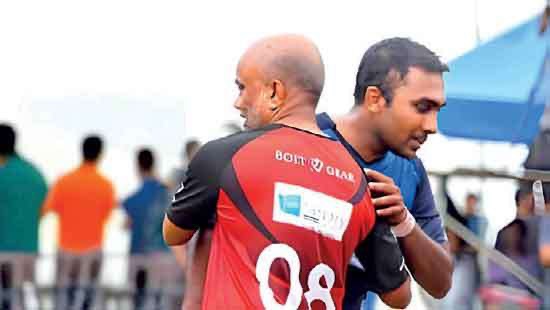
“No Future in Football” – A Harsh Reality
Hameed admitted that he now encourages players to focus on their education instead of football due to the lack of career prospects in the sport. He lamented that football has become an elite pastime hijacked by individuals with no understanding or passion for the game.
There’s no future in it right now—no careers, no livelihood,” he said. “Talent doesn’t matter anymore. Football is now controlled by politics and greed.
School Football in Crisis
His strongest words were reserved for the school football system, which he described as being in complete disarray.
Our school system is a disaster. There’s no coaching, no nurturing of talent, and no proper calendar. Finals are played under harsh conditions, without basic facilities like medical support or crowd control.
Comparing football to the glamor of school rugby and cricket, Hameed pointed out how football is marginalized despite having deep roots and mass appeal.
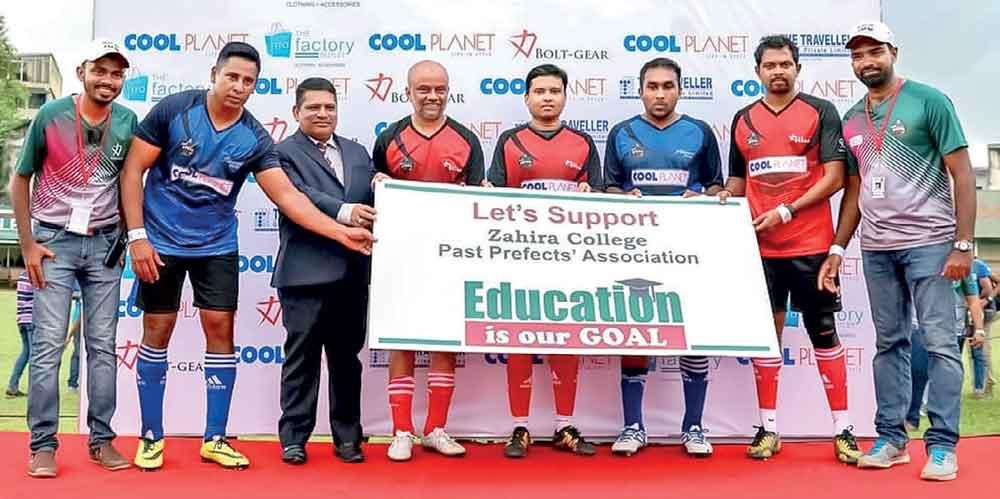
Look at the attention rugby and cricket get. Meanwhile, school football finals happen in near silence. It’s disrespectful.
A Broken Federation
Hameed criticized the Football Federation of Sri Lanka (FFSL) for its failure in leadership and planning.
The wrong people are running the game. They have no playing background, no vision, no strategy — they’re in it for the titles and benefits.
Highlighting Zahira College’s legacy of producing nearly 100 national players, he said that even his alma mater may withdraw from tournaments due to poor planning and conditions.
Give us one tournament and a proper venue — we’ll show you how it’s done.
Call to Clean House
Calling on the Ministry of Sports and the President of Sri Lanka, Hameed demanded a complete overhaul of the football governing body.
Football can unite this country, but it needs leaders with values and professionalism. We need people who genuinely care about the sport.
He referenced Sri Lanka’s recent humiliating 8-0 loss to India and the issue of national players wearing fake jerseys due to budgetary issues, calling it “a national disgrace.”
Final Word
This is not just a game — it’s identity, dignity, and hope. But it’s being destroyed by incompetence. Enough is enough.
Fouzul Hameed’s passionate appeal reflects a broader concern shared by players, fans, and former athletes alike — that Sri Lankan football is long overdue for reform, and that real change must begin with honest leadership and grassroots investment
-

 Live4 years ago
Live4 years agoLive Broadcast of Syria vs Sri Lanka | AFC U23 Asian Championship Qualification
-
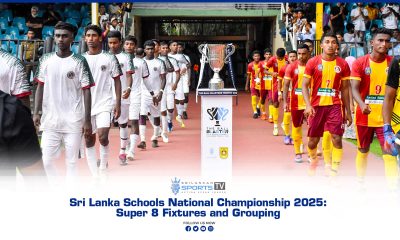
 Football4 months ago
Football4 months agoSri Lanka Schools National Championship 2025: Super 8 Fixtures and Grouping
-
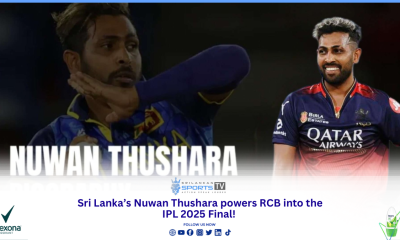
 Cricket7 days ago
Cricket7 days agoNuwan Thushara Shines as RCB Storms into IPL 2025 Final
-
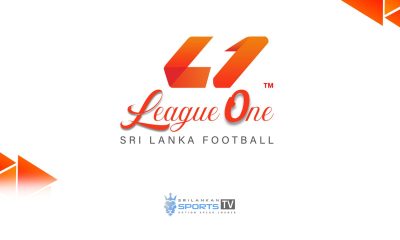
 Football5 months ago
Football5 months agoFFSL Rebrands Division-1 as ‘League-One’ with a Bold New Vision
-

 News4 months ago
News4 months ago2025 Schools Rugby Season Set to Thrill Fans with Knockout and League Action
-

 News4 years ago
News4 years agoWe are Back
-
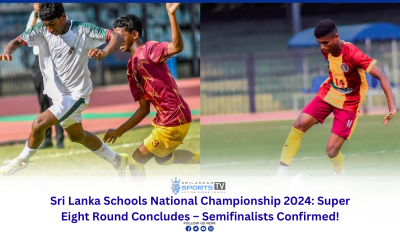
 Football3 months ago
Football3 months agoSri Lanka Schools National Championship 2024: Super Eight Round Concludes – Semifinalists Confirmed!
-

 Football5 months ago
Football5 months agoErling Haaland Signs Record-Breaking 9.5-Year Contract Extension with Manchester City






 Live | Under 18 | Womens Final | Mahajana College Jaffna vs St. John’s College Kalutara
Live | Under 18 | Womens Final | Mahajana College Jaffna vs St. John’s College Kalutara